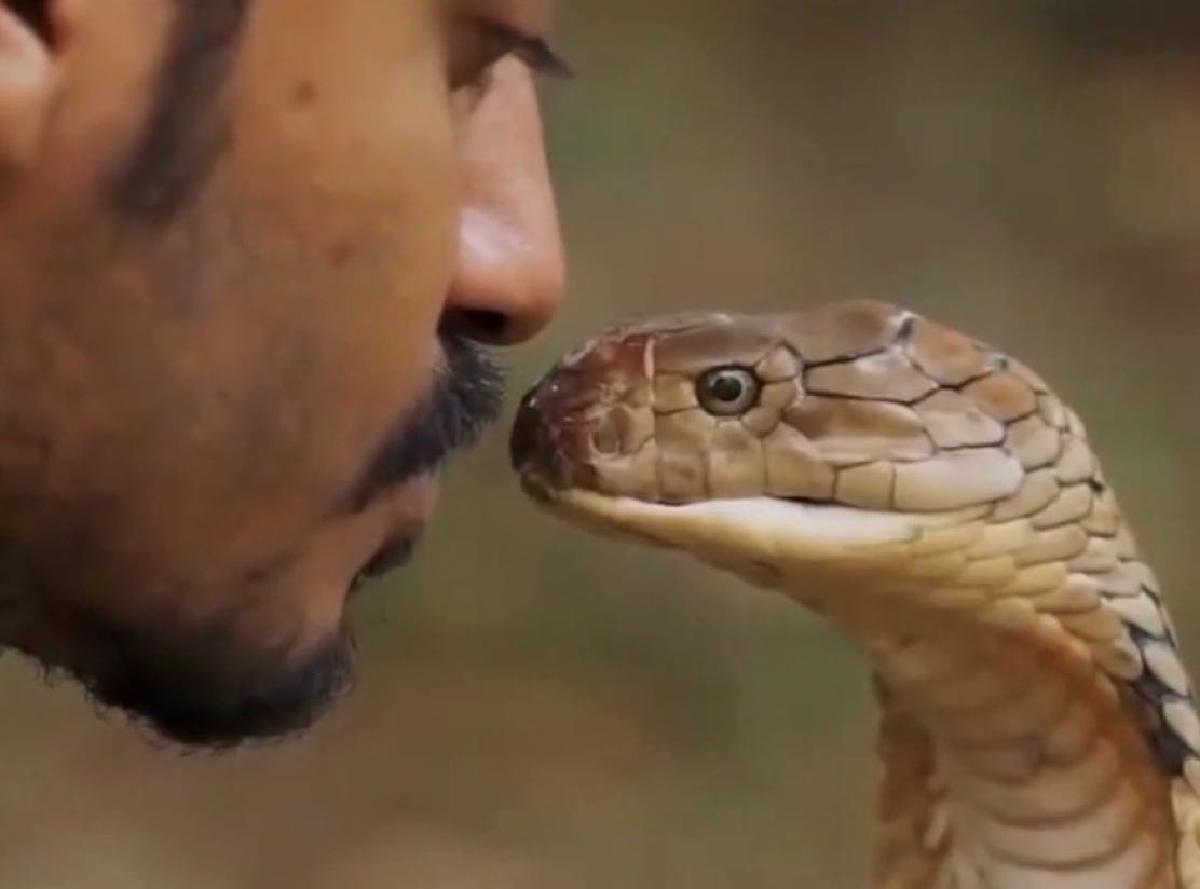The BBC recently reported that a man in Nepal bit to death the cobra that bit him because he had been told by a snake charmer that it would prevent the harmful effects of the venom. What few people know about this odd practice is that it is ancient and spans the subcontinent. The Kāmaratna, a medieval and worldly tantra on a variety of topics says: “When a brave man who is bitten by a snake bites that same snake that bit him, he is freed upon the snake’s death and becomes free of the effects of the venom.” (sarpadaṣṭo yadā vīras taṃ sarpo daṃśate svayam / mukto ‘sau mriyate sarpaḥ svayaṃ nirviṣatāṃ vrajet //) (p.117 of the Indrajālavidyāsaṃgraha collection edited by Vidyasagara 1915). The Rasaratnākara says the same thing with better grammar (p.837, 1909 edition), as does the modern Keralan composition Viṣavaidyasārasamuccaya, a text that I have digitized, and described in another post. This seems to be a classical folk remedy; it is not typically part of the repertoire of the professional snakebite healer (gāruḍika). It does, however, appear to be related to a practice more commonly mentioned of using a mantra to force the snake to come back and remove its venom from the victim via a second bite. One can see a staging of this in the film Sree Krishnaparanthu (displayed in this blog post) at 1:21. Well, the Nepalese man in the BBC story survived his bite, so with the press it has gotten, perhaps this old remedy for the brave/foolhardy victim will continue well into the twenty-first century.
